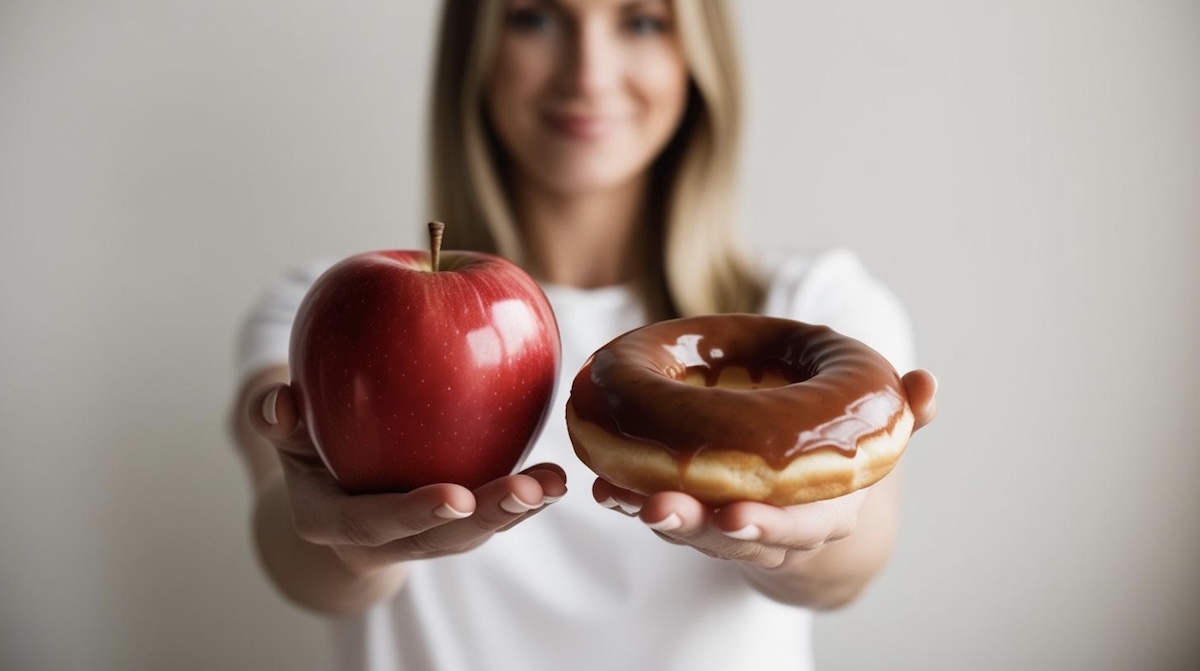How to Break Free from Diet Culture with Intuitive Eating

Diet culture is everywhere — it’s in social media ads, weight-loss challenges, TikTok reels, and even casual conversations about “good” and “bad” foods. It promotes the idea that thinness equals health, and that restrictive eating is the path to wellness. But what if there was another way? Intuitive eating offers an alternative, helping you rebuild a positive relationship with food and your body.
If you’re tired of the endless cycle of dieting, intuitive eating can help you trust your body, nourish yourself without guilt, and finally break free from diet culture. Here’s how to get started.
Why Intuitive Eating
Intuitive eating is an evidence-based approach that helps you rebuild a positive relationship with food by tuning into your body’s natural hunger and fullness cues. Instead of following restrictive diets, it encourages mindful, flexible eating habits that support both physical and mental well-being.
Developed by dietitians Evelyn Tribole and Elyse Resch, intuitive eating is based on ten key principles that focus on rejecting diet mentality, honoring hunger, making peace with food, and respecting your body’s signals.
How Intuitive Eating Differs from Dieting
The difference between dieting and intuitive eating comes down to control/restriction versus trust — while traditional diets impose strict rules about what, when, and how much to eat, intuitive eating empowers you to listen to your body’s natural signals and make choices that support both nourishment and enjoyment.
Traditional diets often:
- Encourage calorie counting and rigid meal plans.
- Promote the idea that certain foods should be avoided.
- Lead to guilt or shame when “breaking the rules.”
Intuitive eating, on the other hand, helps you:
- Trust your body’s natural hunger and fullness cues. Instead of eating based on a set schedule, you eat when your body signals hunger and stop when you’re comfortably full.
- Let go of food guilt. There are no “good” or “bad” foods — everything can fit in a balanced diet.
- Prioritize satisfaction and well-being. Eating should be enjoyable, not stressful.
The Benefits of Intuitive Eating
Studies suggest that intuitive eaters tend to have better psychological well-being, lower stress levels, and a healthier relationship with food compared to chronic dieters. This approach can also help reduce binge eating, emotional eating, and the negative effects of yo-yo dieting.
By focusing on nourishment rather than restriction, intuitive eating allows you to develop a sustainable, guilt-free approach to food — one that prioritizes both your physical and mental health.
How to Begin Trusting Your Body’s Cues and Let Go of Diet Rules
Letting go of dieting can feel scary — especially if you’ve spent years following meal plans and calorie limits. But with practice, you can reconnect with your body’s natural wisdom.
1. Recognize Hunger and Fullness
One of the first steps to intuitive eating is learning how your body signals hunger and fullness. Instead of waiting until you’re starving (which often leads to overeating), try tuning into your body’s cues:
- Mild hunger: Your stomach might feel empty, or you may notice slight fatigue.
- Moderate hunger: Your stomach growls, and food starts to sound appealing.
- Fullness: You feel satisfied but not stuffed.
Honoring your hunger means eating when your body needs fuel — without guilt.
2. Ditch the “Good” and “Bad” Food Labels
Diet culture tells us that some foods are “bad” and should be avoided at all costs. But labeling foods this way often leads to binge eating, food guilt, and an unhealthy relationship with eating.
Intuitive eating removes these labels. Instead of seeing a slice of cake as a “cheat” or a salad as “clean,” start viewing food as neutral — each choice serving a different purpose.
3. Challenge the Food Rules You’ve Learned
Ask yourself:
- Where did I learn that carbs are “bad”?
- Who told me I had to finish my plate even when I was full?
- Why do I feel guilty for enjoying dessert?
Diet rules often come from social expectations, family beliefs, or past experiences. Challenging them helps you break free and build your own, more balanced approach to eating.
Journaling to Reflect on the Impact of Diet Culture
Journaling is a powerful tool for unpacking your thoughts around food and body image. It can help you notice patterns, challenge diet culture beliefs, and track your progress toward intuitive eating.
Try these prompts to explore your relationship with food:
- What are three diet rules I’ve followed in the past, and how have they affected me?
- How do I feel before, during, and after eating?
- What foods do I avoid, and why?
- What does hunger feel like in my body?
- How would my relationship with food change if I let go of guilt?
Writing down your thoughts can bring awareness to harmful beliefs and help you create a more positive, flexible approach to eating.
Embracing Freedom from Diet Culture
Breaking free from diet culture doesn’t happen overnight, but small steps can make a big difference. By tuning into your hunger, letting go of food rules, and reflecting on your relationship with eating, you can create a healthier, more intuitive way of nourishing yourself.
The journey isn’t about perfection — it’s about learning to trust yourself, enjoy food, and prioritize well-being over restrictive diets. Ready to take the first step? Start by honoring your hunger today — no rules, no guilt, just trust.
Dr. Erin Nitschke is a professor of exercise science at Laramie County Community College. She holds certifications including NFPT-CPT, NSCA-CPT, ACE Health Coach, Fitness Nutrition Specialist, Therapeutic Exercise Specialist, and Pn1. Erin is an editorial author for IDEA, NFPT, where she writes regularly on topics related to personal training and health coach skill building, behavior change, and career success.